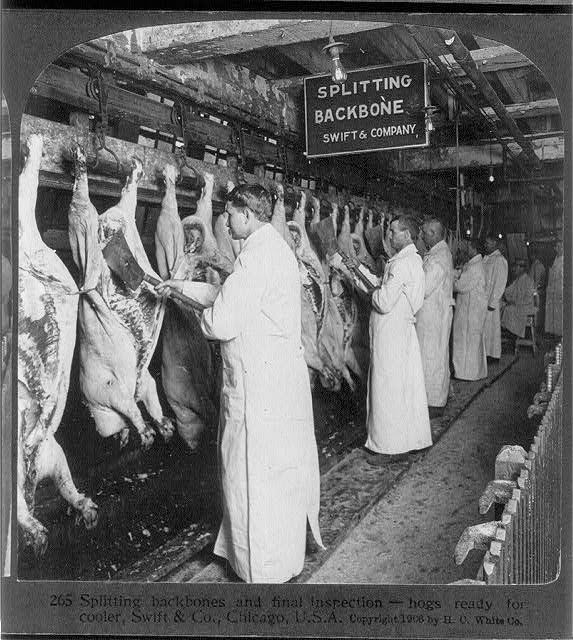 |
| Perdue company logo Source. |
However, Perdue's chicken were not humanly raised. They were given hormones to their chickens when they are just baby chickens. Since they give the chickens hormones, they are basically fully grown in about 49 days instead of 3 months. However, because they are fed hormones, they chickens breasts are to heavy for them, therefore they are unable to walk more than a few steps. Also, their internal organs and bones can't keep up with them growing so fast, that some chickens can't even walk. There was a study conducted that showed that if humans were to grow at the same rate of the chickens, we would weigh about 660 pounds in 8 weeks.
 |
| Chickens breasts are so big they can barely stand. Source. |
Not only are the chickens being given hormones that harm them, they are forced to live in horrendous conditions. First of all, many chicken keeps would not get any sunlight at all. It was Dusty and smelled like feces. Many chickens live in stockyards, where they have very little room to move. There is also excrement on the floor that rarely, if ever, gets cleaned up. Since it never gets cleaned and chickens have to drag themselves around to move, the bacteria in the feces causes the feathers and parts of the skin to be "burned of" of the chicken. Even though the labels on the Packaging say, "cage free" it doesn't change anything. In Kristof's article he writes, "The claim about the chickens being raised "cage free" is misleading because birds raised for meat are not in cages. It's egg-laying chickens are caged, not the ones we eat. So "cage free" is meaningful for eggs but not for chicken meat." This means that the corporations are trying to manipulate us into thinking that the chickens are being treated humanly, when in reality they're not.
 |
| Meat inspection in Chicago. Source. |
By reading the article titled, "Abusing Chickens We Eat" by Nicholas Kristof, it opened my eyes to the reality or food corporations and how they treat their products and employees. In reality, it's not only chickens being abused it's also other animals like cattle. Also, many of the "farmers" say its not really farming anymore. It's just mass production. I learned that the corporations make the farmers upgrade their chicken stockyards all the time making the farmers go into debt. And if the farmers wouldn't upgrade, they would run the enormous risk of losing their contract with the corporation. By learning all this new information on food corporations, I have decided I would cut down on my meat and poultry consumption.
I think that you did a great job with the information you gather, however the use of words could of been better, it needed a more academic language.
ReplyDelete